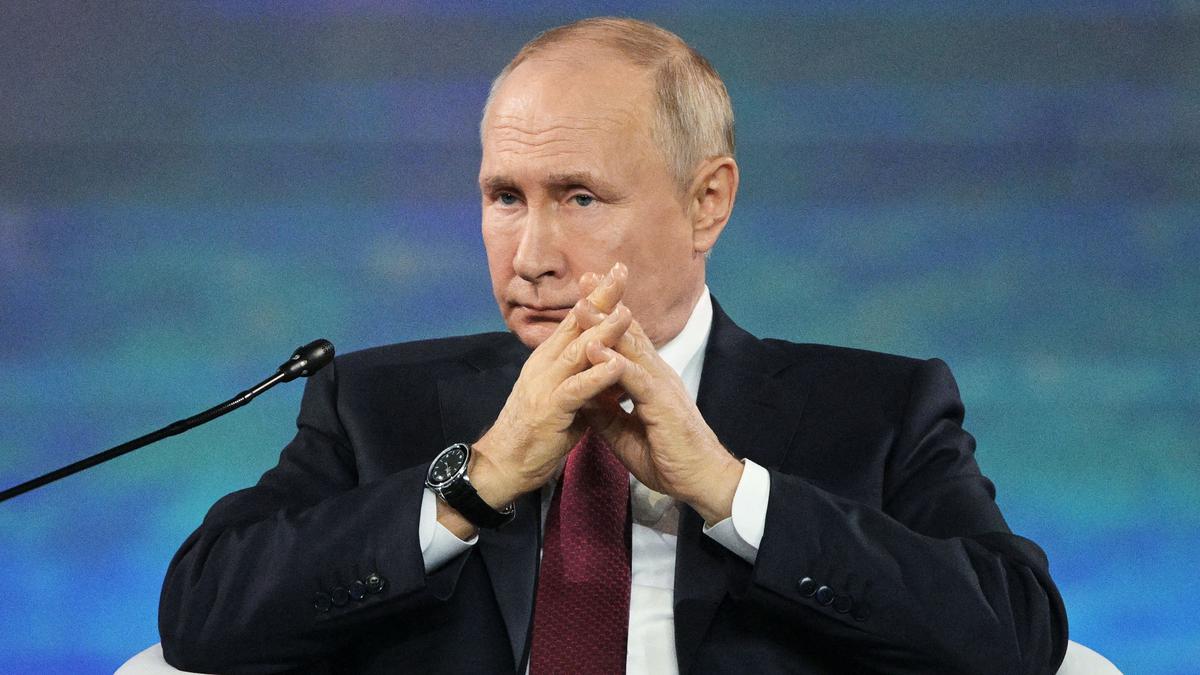
At ‘Russian Davos’, Putin praises ‘economic resilience’, seeks alternative partnerships Premium
The Hindu
The 26th edition of the elite St. Petersburg Economic Forum, which saw the participation of over 17,000 people from 130 countries, including Hungary, the UAE, China and India, witnessed discussions on a host of topics ranging from the Ukraine war to trade and connectivity, and the signing of hundreds of agreements
As the war in Ukraine drags on, taking a heavy toll on both sides of the frontline, Russia, faced with the biggest standoff with the West in its modern history, keeps looking for alternative economic and geopolitical partnerships to navigate the “challenging times”. At the 26th edition of the St. Petersburg International Economic Forum (SPIEF), held last week in Russia’s second-largest city and former imperial capital, the Kremlin made its message clear to the entire world: the economy is holding up despite unprecedented Western sanctions.
Also Read: ‘India, Russia should have direct trade and investment agreements’
This year’s “wartime” SPIEF turned out less international and lavish than its past editions, for obvious reasons, even though organisers claimed the participation of over 17,000 people from 130 countries, including high-ranking officials from the UAE, Algeria, Armenia, Cuba and delegations from China, India and Brazil.
Elite gathering
The SPIEF used to be called “Russian Davos” as it was probably the only such elite gathering of global business community leaders in this part of the world. At different times, Russian President Vladimir Putin had shared the stage with different world leaders including Prime Minister Narendra Modi, Federal Chancellor of Austria Christian Kern, and President of Moldova Igor Dodon (2017); French President Emmanuel Macron and Prime Minister of Japan Shinzo Abe (2018); Chinese President Xi Jinping, President of Bulgaria Rumen Radev and Prime Ministers of Armenia and Slovakia Nikol Pashinyan and Peter Pellegrini as well as UN Secretary-General António Guterres (2019).
Except Hungarian Foreign Minister Péter Szijjártó, who made his appearance at the forum and addressed one of the key sessions on energy security, calling on countries to stop politicising it and return to rational decision-making, high-ranking delegates and CEOs from the West were missing at SPIEF. So were the international media.
Correspondents of foreign outlets still operating in Russia were denied accreditation. The Kremlin spokesperson confirmed the decision to not provide accreditation to media from “unfriendly countries” (those which have imposed sanctions against Russia — altogether over 20 countries, including the United States, European Union countries, Canada, South Korea, Japan and others).













